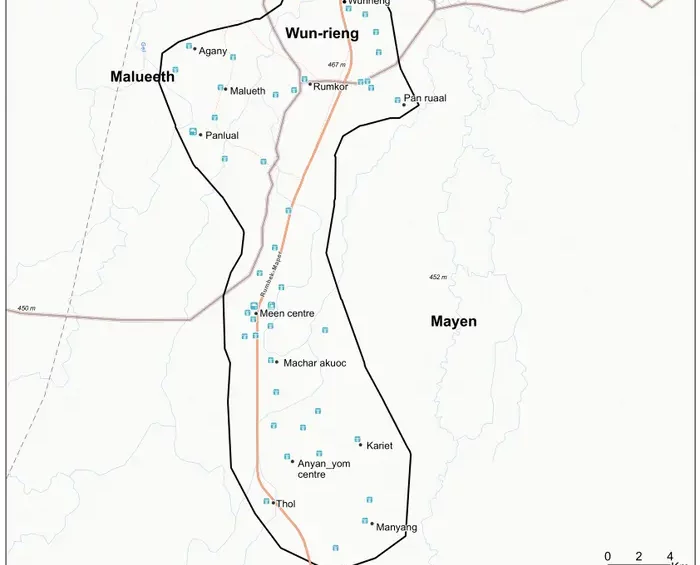
– Advertisement –
By H.E. Liu Jin, Chinese Ambassador to The Gambia
This year marks the 80th anniversary of the victory of the World Anti-Fascist War and the founding of the United Nations. Eighty years ago, the international community learned profound lessons from the scourge of two world wars and founded the UN, thus writing a new page in global governance. Today, eighty years later, the world has found itself in a new period of turbulence and transformation, and global governance has come to a new crossroads. What kind of global governance system should we build and how should we reform and improve it?
To answer this question of our times, on September 1st, President Xi Jinping proposed the Global Governance Initiative (GGI) in the “Shanghai Cooperation Organisation Plus” Meeting in Tian Jin, China. The GGI encompasses five core concepts:
– Advertisement –
First, adhering to sovereign equality. It should be maintained that all countries, regardless of size, strength and wealth, are equal participants, decision-makers and beneficiaries in global governance. Efforts should be made to promote greater democracy in international relations and increase the representation and voice of developing countries.
Second, abiding by international rule of law. The purposes and principles of the UN Charter and other universally recognised basic norms of international relations must be observed comprehensively, fully and in their entirety. International law and rules should be applied equally and uniformly. There should be no double standards, and the house rules of a few countries must not be imposed upon others.
Third, practicing multilateralism. It is important to uphold the vision of global governance featuring extensive consultation and joint contribution for shared benefit, strengthen solidarity and coordination, oppose unilateralism, firmly safeguard the status and authority of the UN, and ensure its irreplaceable, key role in global governance.
– Advertisement –
Fourth, advocating the people-centered approach. The global governance system should be reformed and improved to ensure that the people of every nation are the actors in and beneficiaries of global governance, so as to better tackle the common challenges for mankind, better narrow the North-South gap, and better safeguard the common interests of all countries.
Fifth, focusing on taking real actions. It is important to adopt a systematic and holistic approach, coordinate global actions, fully mobilize various resources, strive for more visible outcomes, and enhance practical cooperation to prevent the governance system from lagging behind or being fragmented.
The GGI is the latest major initiative proposed by China, after the Global Development Initiative, the Global Security Initiative and the Global Civilization Initiative. By way of putting forward the “China solution”, China is shouldering its responsibility, in spearheading the reform of the global governance system. China is not preaching, but leading by examples. Over the past three weeks only, China has rolled out three major actions in key global governance areas, from green development to multilateral trade, to the cause of women empowerment.
1. China announces its new Nationally Determined Contributions (NDCs), actively promoting Green, Low-Carbon and Sustainable Development.
On 24th September, President Xi announced China’s new NDCs at the United Nations Climate Summit as follows: China will, by 2035, reduce economy-wide net greenhouse gas emissions by 7% to 10% from peak levels, striving to do better; increase the share of non-fossil fuels in total energy consumption to over 30%; expand the installed capacity of wind and solar power to over six times the 2020 levels, striving to bring the total to 3,600 gigawatts; scale up the total forest stock volume to over 24 billion cubic meters; make new energy vehicles the mainstream in the sales of new vehicles; expand the National Carbon Emissions Trading Market to cover major high-emission sectors; and basically establish a climate adaptive society. We share the same planet and are indeed a community with a shared future, breathing the same air. This year marks the 10th anniversary of the Paris Agreement, a pivotal year for countries to submit their new NDCs. China will, as always, contribute to the global response to climate change with concrete actions, boost the confidence of the international community in the global climate governance process, and protect our shared planet.
2. China will not seek new special and differential treatment in current and future negotiations at the World Trade Organization (WTO), demonstrating China’s commitment to promoting the improvement of global economic governance.
On 23rd September, Chinese Premier Li Qiang declared at the UN headquarters in New York that as a responsible major developing country, China will not seek new special and differential treatment in current and future negotiations at the WTO. Upon its accession to the WTO in 2001 as a developing member, China adopted a pragmatic and autonomous approach by proactively adjusting and relinquishing certain special and differential treatments. China’s status as a developing country remains unchanged, yet it has resolutely decided to transcend its own interests and proactively shoulder greater international responsibilities. Against the backdrop of the international multilateral trading system being increasingly impacted by unilateralism and protectionism, and the global development outlook being overshadowed by uncertainties, China’s decision will inject a strong boost to global economy. It demonstrates China’s firm stance and great-power responsibility to firmly support the multilateral trading system and promote the building of a more fair and equitable global governance system through concrete actions. As the world’s largest developing country, China will always stand together with The Gambia and other developing nations, working jointly to safeguard the legitimate rights and interests of the Global South, strengthen South-South cooperation, bridge the North-South development gap, and promote the reform of the international economic governance system.
3. China will carry forward the spirit of the Beijing World Conference on Women and resolutely promote global women empowerment.
The Global Leaders’ Meeting on Women was held in Beijing from 13th to 14th October, to jointly commemorate the 30th anniversary of the Fourth World Conference on Women. President Xi delivered a keynote address, reviewing the development of the global women’s cause over the past 30 years. President Xi called for joint efforts to foster an enabling environment for women’s growth and development, cultivate powerful momentum for the high-quality development of women’s cause, develop governance frameworks to protect women’s rights and interests, and write a new chapter in promoting global cooperation on women. President Xi announced that China will donate another US$10 million to UN Women; earmark a quota of US$100 million in China’s Global Development and South-South Cooperation Fund for implementing development cooperation projects for women and girls in collaboration with international organisations; launch one thousand “small and beautiful” livelihood programmes with Chinese assistance; invite 50,000 women to China for exchange and training programs; and establish a Global Centre for Women’s Capacity Building, aiming at training more female talent in partnership with relevant countries and international organisations in the next five years. China will consistently advance global women’s empowerment and support the development of women’s causes worldwide, with a particular focus on women in developing countries.
History flows like the tide, the path forward is well-founded, and our world is vast and full of promise. China and The Gambia share a high degree of consensus and hold the same or similar positions on the major issue of global governance. China is willing to work together with The Gambia and other countries around the world to implement the Four Major Global Initiatives, to sail on the ship of human solidarity, breaking waves toward the bright future of building a community with a shared future for mankind.












